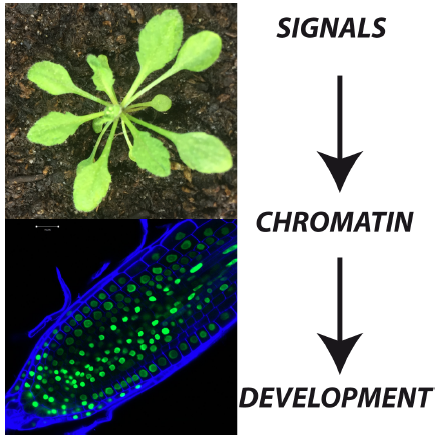Welcome to the MDL lab website

In our lab, we investigate how chromatin and gene expression are dynamically regulated to guide plant environmental adaptation
The lab is located in Durham, one of the most beautiful cities of the north east of England. Our University is considered in the top 5 in the UK and within the world top 100. https://www.dur.ac.uk
Our department is not big in numbers, but is big in quality. Check it out! https://www.dur.ac.uk/biosciences/

Lab research focus
Eukaryotic cells package their genome into a nucleo-protein complex called chromatin. This structure governs DNA accessibility and thus processes such as DNA replication, gene expression or DNA repair. The proper regulation of chromatin is key for the right outcome of cellular and developmental processes. Chromatin structure is, in part, controlled via an enormous combination of histone post-translational modifications, and understanding their role in guiding genomic functions and development is one of the biggest challenges in biology.

In contrast to animals with their almost exclusively embryogenic development, organ formation in plants occurs largely postembryonically. Plant cell walls are rigid, thus cells do not migrate in the tissue. Furthermore, plant development is extremely plastic and requires the constant reprograming of cell functions to the environment.
This extraordinary developmental plasticity is, in part, due to the existence of a highly complex regulatory network able to integrate the environmental information with the intrinsic developmental processes.
All this together makes plants wonderful organisms for the study of chromatin regulation and its function. We use the model plant Arabidopsis thaliana to investigate how chromatin structure is dynamically regulated by the signals that govern development. Principally light and hormones.
Get in Touch
Miguel de Lucas
Miguel.de-lucas@durham.ac.uk
+44 (0) 191 334 1237
